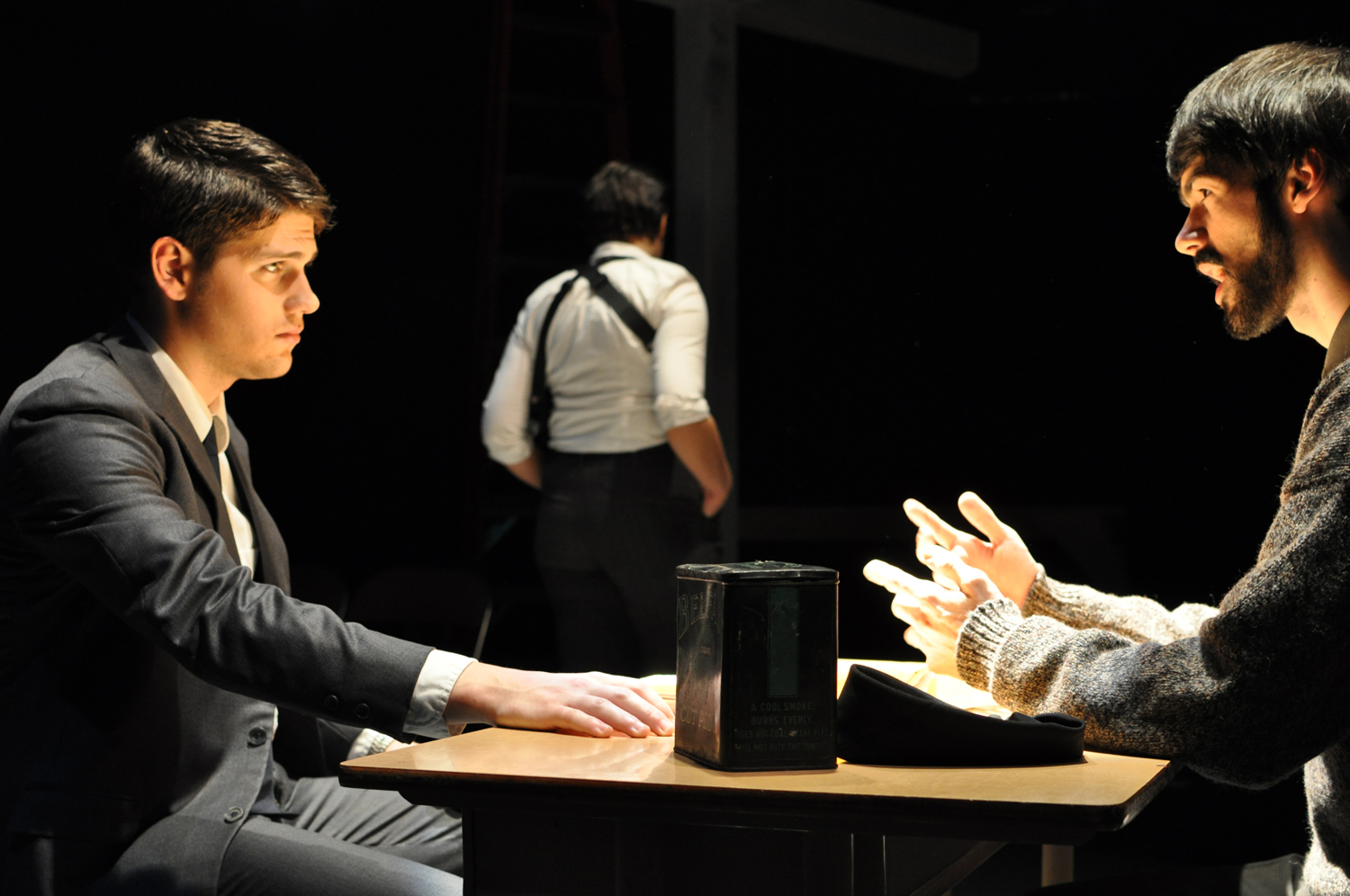
If Quentin Tarantino were to make children’s stories, they would resemble ones found in Martin McDonagh’s The Pillowman.
Descending into the darkness of human nature itself, The Pillowman questions individualism, creativity, morality, law, science and religion through demented fables—basically, this show questions everything. For those able to sit through The Pillowman’s hefty runtime of three hours last weekend, the Department of Theatre Arts delivered a well-executed, deeply unsettling drama.
The Pillowman takes place in a future ruled by an oppressive, totalitarian government where laws are merely “guidelines.” The plot hinges around a children’s story-writer, Katurian (Taylor Griffin ’11), who is tortured and interrogated due to the similarities between his stories and the bizarre child murders occurring all over town. The interrogators are Ariel (Jen Davis ’11), a hard cop with a soft spot for children, and Tupolski (Mitch Knottingham ’11), a dry-humored detective committed to swift, uncompromising justice. Katurian’s mentally-challenged brother, Michal (Brian Ernst ’13), is also held in custody, although he’s even more bewildered as to why he’s imprisoned than Katurian. Through many twists of fate, Katurian and Michal’s mother (Rachel Krauss ’13) and father (Peter Wallerich-Neils ’12) are brought into the fray, thickening the plot. By the time a mute girl (Delany Pelz ’14), who was thought to be dead is found alive by the police, the audience experiences several major plot twists.
Having read the original script for my Theatrical Experience class last semester, it was thrilling to see the play come to life through fellow colleagues here at Puget Sound. The actors of The Pillowman were skilled enough that they exceeded my expectations, at times, making my heart beat faster with the intensity of their delivery. Griffin’s recitations of Katurian’s graphic stories—many too graphic to recall in a newspaper —immediately captivated the audience. When things take a turn for the worst for Katurian, Griffin had the panicked countenance of a cornered animal. Griffin’s commitment to his character was thoroughly inspiring —his tortured cries were almost too real.
It is wrong to say that The Pillowman was all doom and gloom though; the show’s humor was witty and acted as a buffer for the show’s relatively dark character. A major contributor to the comedy was Ernst’s portrayal of Katurian’s brother, Michal. In many scenes, Ernst was convincing in portraying the character’s spastic nature and inherent obliviousness. Ernst’s funniest scene was one in which his character and Katurian are on the verge of execution—Michal’s only concern, he tells his brother very loudly, is his “itchy ass.”
I was thoroughly impressed by the production’s faithfulness to the original script—as far as I could tell, it didn’t seem that a single line was changed. I found it interesting that the show’s director, Lisa Armstrong, even retained McDonagh’s British colloquialisms such as “mum,” “bloody,” and “being home for tea.” The choice of adapting the Norton Clapp to in-the-round-style theater was also an effective way to enhance the intimacy of interactions between actors and audience members.
The Senior Theatre Festival’s presentation of The Pillowman went above and beyond anything I had imagined when I recall the original script. On a human level, it was simply better than the script alone —more disturbing, more thought-provoking and more entertaining. Katurian’s persistence to preserve his stories following his death voices the ultimate theme of the play—what we leave behind us. The Pillowman is, without a doubt, one of the best dramas I’ve seen in recent memory, and I’m sure it will not soon be forgotten either.
[Photo Courtesy / Jesse Baldridge]
